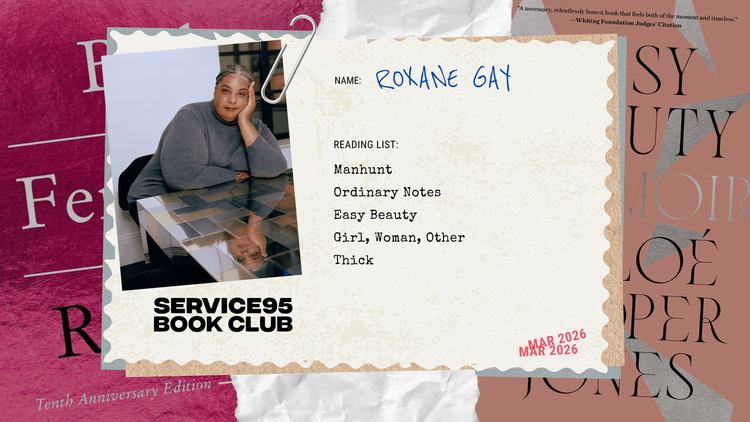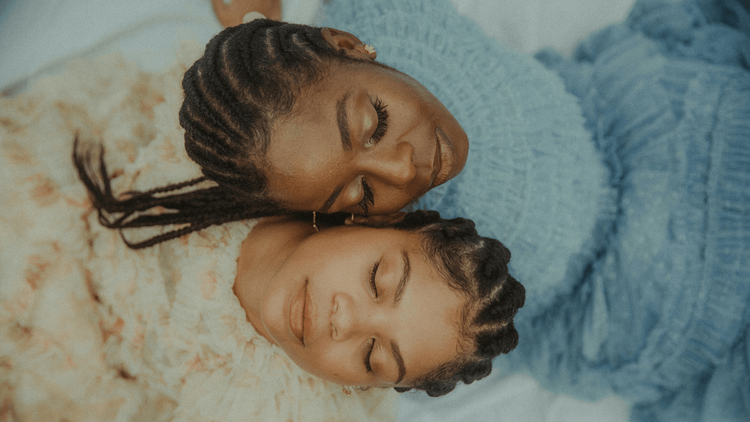TW: This article contains discussions of mental health and thoughts of self-harm
There are certain characteristics that precede Rosie van Amerongen (better known as Rosie Viva), like a soft hum before a song. Some are immediately visible: the kind of beauty that gets you scouted at 15; the poise of someone accustomed to being looked at. Even over Zoom, she’s luminous. So too is her confidence – quiet, but hard-won. At 28, she has already made a well-received documentary and carries herself with the steadiness of someone who’s wrestled with chaos and lived to tell the tale. Now, she’s gone deeper. Her debut book, Completely Normal and Totally Fine, traces the most harrowing chapter of her life: a psychotic episode at 22 that left her hospitalised for three months, a bipolar diagnosis that shattered her sense of self, and – eventually – discovering a purpose she hadn’t expected. To not just survive but rebuild. To reclaim her voice. To make sense of what once felt unspeakable.

That hasn’t always been easy but, chatting with Rosie, you’d hardly know it. Within minutes, she’s speaking candidly about the empathy she now feels for her younger self – the one who, in the grip of a manic episode after a painful breakup, proposed to a stranger in Costa Coffee, set off security alarms at Stansted airport and tried to jump through baggage claim. It’s been a long and painful road since then. “Someone told me the other day that, with bipolar, confidence is the first thing to go and the last thing to come back,” she explains. “My confidence has taken six years to come back.”
Though bipolar disorder is (slowly) becoming more understood by the public consciousness – in part, thanks to celebrities such as Selena Gomez, Stephen Fry and Gizzi Erskine sharing their experiences with the condition – it has been persistently misunderstood over the years. Bipolar is characterised by periods of hypomanic or manic (elevated) moods, precipitated or followed by intense, often suicidal, lows. Frequently, as with Rosie, it grows roots at a young age, undetected or disguised as fluctuations in hormones or just melodrama. “From the age of 15, I had a lot of depression and paranoia,” says Rosie. “Depression came after being sent to boarding school; it would always come after break-ups. Everyone used the word ‘sensitive’ to describe me, and that’s what I thought I was.”
Not unrelated, it was this period that led to Rosie’s modelling career – driven by her teenage boyfriend ditching her for a “girl who was in Hollyoaks and did Topshop modelling”, she became determined to do the same. It worked: she was scouted at Camden market when she was just 15. By 2016, Rosie was modelling for Gucci and living a life that was filled with highs, lows and – crucially – more rejection.
From school corridors to casting calls, low moods clung to her like static, though it was never registered as anything more complex than being part of her personality – feeling things a little too deeply. Rosie’s early modelling career wasn’t the fix she’d hoped for – instead of providing validation and a distraction, it stripped away at her confidence, leaving raw nerves exposed. “I started thinking, ‘You’re never happy with anything. Even when you get what you want. So what is going to make you happy?’” That realisation deepened the spiral, feeding a growing belief that she was fundamentally broken. “I remember thinking, ‘I have no chance of being someone who is happy. My dream scenario is playing out in front of me, and I still can’t feel grateful. So maybe I’m just a bad person.’”
“Someone told me the other day that, with bipolar, confidence is the first thing to go and the last thing to come back. My confidence has taken six years to come back”
After being hospitalized in her early twenties, Rosie found herself negotiating a system that, she says, “felt more like punishment than care”. Restricted shower use, 45-minute visits, and rules that quietly told her, again and again: you’re not to be trusted with yourself. “It was like everything up until 22 was just screaming at me: you’re bad, you’re bad, you’re bad,” she says.
Six years have passed since then and, today, Rosie – who laughs, and makes me laugh frequently during our hour-long chat – has a very different voice driving her self-image. Bipolar disorder was once something that she and her mum thought was a “mean accusation” from a concerned GP – a suggestion that, in some ways, landed exactly where stigma lives: at the core of identity. But, over time, that diagnosis became a doorway, not a judgment – a point of self-exploration that allowed her to question and detach from the narrative she’d believed about herself for so many years.
That’s not to say the road has been linear. After her diagnosis, Rosie spent seven months trialling medications that didn’t appear to work, spiralling further and further into suicidal depression, which kills around 15-20% of people with bipolar disorder. “I just wanted to get back to life, and I think that’s when I just wanted anyone’s life but mine,” she explains, with solemnity. “I’m not a jealous person at all. I never have been. But that time was just green. I thought all the time, ‘Why me? Why this?’ I feared that this would be a yearly occurrence, to be in hospital.”
Her mental health deteriorated to the point that, at one stage, she had concrete plans to end her life. “I didn’t think I wanted to survive it,” she says. “Because I didn’t believe there was a version of ‘better’ I could live with.”
Yet, slowly, something began to shift. Rosie found a way to understand her illness outside of the binaries bipolar is so often naively defined within: well or unwell, up or down, manic or depressed. “Really, I think that means I’m just learning to trust my sense of self again, and realise that the diagnosis didn’t actually change me,” she explains. “For a few years after the diagnosis I was subscribing to Women’s Health and telling myself, ‘OK, you have to eat paleo, give up drinking, do yoga every day.’ Actually, one boring yoga teacher can put me more in my head than when I started. I felt that I had to do the ‘right’ things – but it wasn’t working for me.”

As she came to realise, healing isn’t about following someone else’s blueprint. “I think it’s finding your voice again, outside of the depression, and being consistent – finding that gut feeling of what makes you feel better, what actually shifts your state. And knowing your limits. I knew at 16 that wine sends me low but I’ve always been fine on tequila. I can take MDMA occasionally, but one puff of weed and I almost lose my mind entirely.” Running has become a vital part of Rosie’s routine, serving as both a physical release and mental anchor. She has also worked on identifying potential triggers that can spark episodes – namely, rejection and abandonment.
Of course, this self-awareness is especially crucial in dating and relationships, where she’s typically upfront about her diagnosis from the get-go. “If I’m not going to feel safe with someone, it’s never going to last,” she says. Recently she and a guy she was seeing watched the documentary she made about her illness for Channel 4 in 2023 – Modelling, Mania and Me – together. “He said he wanted to watch it and I was like, ‘Oh can I at least be there so I can overcompensate and tell you that I’m actually really, really, stable!’ Like, ‘Honestly I’m really, really cool!’”
If anyone was inclined to use a word like “brave”, or “courageous” to describe Rosie, I think watching back your own manic episode with a potential love interest would be the most genuine point in her story to do so. That evening, she watched her admirable, more confident younger self on screen: a person she’s spent a long time working her way back to. It’s a journey that she’s spent publicly “high-functioning”, while often privately unravelling.
The stigma around bipolar, Rosie explains, is very much still real – she offers the example of when, after leaving modelling, she took a desk job. Despite explaining her condition to bosses, she was still given a formal warning for her behaviour during an episode of illness – “laughing loads” and not sleeping for days (another classic symptom of hypomania). In love and life, Rosie advises other bipolar people to make a smart call when they’re thinking of disclosing their illness, given what she and others have experienced – though we agree that it shouldn’t be an issue at all. “If anything is going to make managing your bipolar easier – like telling a boss, or a friend – you should do it,” she says. “But if you’re intelligent enough to know that telling them – or socially, in certain friendship groups, even – [is going to make things difficult] then don’t make your life more stressful. We’re already dealing with so much by managing this.”
Life is much simpler for Rosie now, though still suitably exciting. She is an ambassador for Bipolar UK, a role in which she can advocate for others affected by bipolar and promote better understanding of the condition, which is crucial work to reduce stigma. Her new book – a fittingly open, no frills, honest account of what happens when you lose your mind – will undoubtedly find its audience of young people also grappling with diagnosis. Indeed, she hopes that it’ll make a decent contribution to “rebalancing” the conversation about bipolar disorder. “Hopefully it helps people understand that a bipolar person isn’t evil, or flippant, or just someone with ‘mood swings,” she says.
It feels as though it’s written for her younger self – is it? “I just remember coming out of hospital and thinking, ‘OK, I have bipolar, but I’m not an older, white man...’ It seemed like only Stephen Fry was talking about it. I knew there was a gap there. I wish I’d had someone like me talking about it back then,” she says.
Now, she’s focused on building something that feels more aligned – with herself, and with what she knows is possible, by continuing to learn about her condition and educating others along the way. “I’ve learned the most from other bipolar people – the main thing being that it’s not an innately bad thing. It can be a bad thing, of course. You can be ill, and you can slip into periods of being ill. But then there’s also the manageable sides to it, where you have heightened senses and hypomania” – a milder, but still potentially disruptive type of mania, or elevated mood – “you’re thinking quickly and you’ve got this confidence, or you’re learning a lot about empathy.”
This recognition of bipolar as something complex, rather than destructive, reveals a profound shift: a reminder that mental health is not a fixed state, but a spectrum of experiences. It’s about finding agency in a condition that can feel like it takes control, understanding its nuances and, ultimately, finding ways to navigate its challenges with resilience, compassion and acceptance.
“The mental health space is all about learning to accept who you are,” confirms Rosie, and I’m reminded of the sweet dedication in her book: to her parents, Amanda and Victor, “for believing in [her] return to Rosie”. It seems she might have made it.
Completely Normal and Totally Fine: My Life with Bipolar Disorder by Rosie Viva is out now











